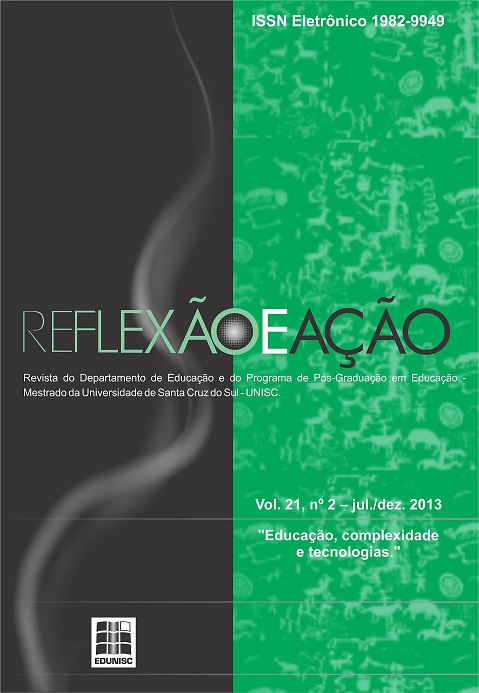GAIA AND UFERSA: A INTERINSTITUTIONAL COLLABORATION FOR APPROACH OF TECHNICAL OBJECT AS COMPLEX ENGAGEMENT IN THE TREATMENT OF COGNITIVE DISORDERS
DOI:
https://doi.org/10.17058/rea.v21i2.3971Keywords:
Cognitive Disorders, Digital Technologies, Psychic and Collective Individuation, Interinstitutional CollaborationAbstract
In this writing, we present a theoretical network that supports interinstitutional projects developed at both universities University of Santa Cruz do Sul - UNISC and Rural Federal University of the Semi-Arid - UFERSA. It is the analysis of cognitive processes that emerge from the experience of children and young people with developmental disorders in interactions mediated by digital technologies. The Biology of Cognition by Maturana and Varela favor the understanding of how subjects reconfigure cognition in circular movements of maintenance of the organization, while everything transforms itself in affective and cognitive terms. Simondon discusses the connections between the processes of both individualization technique and psychic and collective individuation, which happen as a becoming in which we think the subject that makes himself in the experience of living. The research projects are produced in the interface technology-education-mental health and invite us for experiences in which children and young people with cognitive disorders potentiate cognition, experiences whose emphasis is on careful, on listening and observation and analysis of processes that have to see with the power and devires of the human.Downloads
Downloads
Published
How to Cite
Issue
Section
License
The submission of originals to this journal implies on the transference, by the author(s), of the printed and digital publishing rights. The author´s rights to the published articles are the author´s, the journal has the rights over the first publication. The author(s) can only use the same results in other publications, indicating clearly that this journal was the original publisher. Since we are an open access journal, the free use of articles is permitted for educational and scientific applications, as long as they inform the source according with the CC-BY license from Creative Commons.


